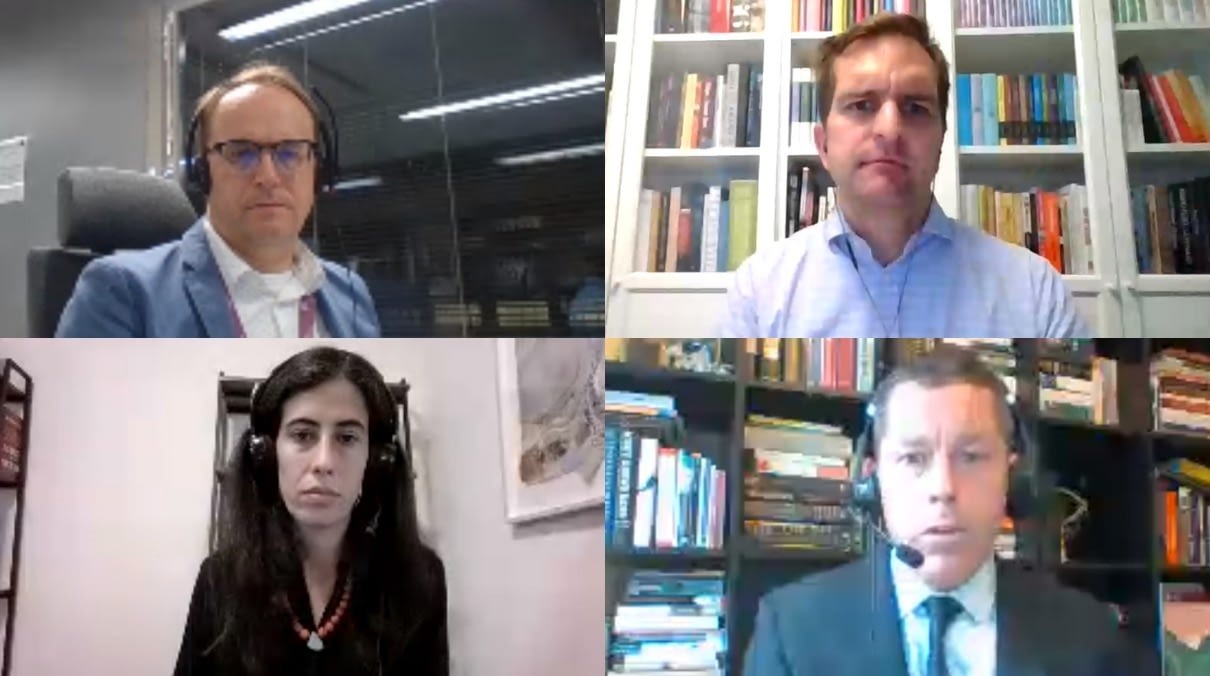
In October 2020, the IIJ convened a First Online Expert Meeting on Countering Racially or Ethnically Motivated Violent Extremism (REMVE) under the new IIJ REMVE Initiative, which is being implemented with support from the Governments of the United States and the United Kingdom.
The growing number of cases of REMVE around the world presents a dangerous and increasingly transnational threat. Criminal justice actors have a critical role to play in countering this threat. From identifying, investigating, disrupting and prosecuting REMVE cells, networks and lone actors, to incarcerating REMVE offenders and expanding pre-trial services, to providing prison rehabilitation programmes, to post-release monitoring, the scope of criminal justice practitioners’ responsibilities in this area are broad and wide-ranging. Over the past twenty years, the international community has gained significant experience in counter-terrorism, primarily in addressing the threat posed by ISIS, al Qa’ida and their affiliates and branches, along with individuals inspired by their rhetoric. While some of this experience and expertise is directly relevant to countering REMVE, there are also significant differences that require new knowledge, approaches, strategies, and tools. Notably, while ISIS and al Qa’ida are far more structured and hierarchical organisations, many of the individuals around the world involved in REMVE incitement, recruitment and radicalisation are only loosely connected, mostly in the online space, which poses significant challenges for law enforcement in uncovering and dismantling REMVE plots and related activity.

The main objective of the IIJ REMVE initiative is to examine how criminal justice actors can most effectively tackle the REMVE phenomenon, drawing from the extensive national experiences of governments in confronting these types of threats – both currently and historically. This represents an opportunity for criminal justice practitioners to share and build their capacity in how they are approaching the issues. Through a series of Expert Meetings, the IIJ is developing an IIJ Criminal Justice Practitioner’s Guide for Addressing REMVE, with a focus on law enforcement engagement with civil society and relevant community stakeholders.
This First Online Expert Meeting brought together 43 practitioners and subject-matter experts, among them prosecutors, police officers and investigators, and policymakers, from 15 countries, including Australia, Canada, Estonia, Finland, Germany, Greece, Italy, the Netherlands, Norway, Portugal, Serbia, Slovakia, Sweden, the United Kingdom, and the United States. They were joined by representatives of Eurojust, the European Commission (EC), the Council of Europe (COE), Europol, the European Union’s Radicalisation Awareness Network (RAN), the German Institute on Radicalization and De-radicalization Studies (GIRDS), the Organization for Security and Co-operation in Europe (OSCE), the University of Oslo Center for Research on Extremism (C-REX) and the United Nations Office of Counter-Terrorism (UNOCT),
During the meeting, prosecutors and investigators who have been addressing REMVE threats in their respective jurisdictions described in detail recent country-level efforts to improve law enforcement agencies’ capabilities in this respect. Dr. Tore Bjørgo, Director of C-REX, presented cutting-edge research on the impact that government legal boundaries have had on the activities of one transnationally networked REMVE group, the Nordic Resistance Movement (NRM), and related obstacles to investigating and prosecuting group members.
Participants then discussed issues and obstacles that arise in detecting, investigating, disrupting and prosecuting REMT cells, networks and lone actors, incarcerating REMVE offenders, coordinating and sharing information internationally, engaging with community stakeholders, providing prison rehabilitation programmes, and conducting post-release monitoring.
The IIJ will continue to advance the REMVE initiative with a Second Online Expert Meeting to be held at the end of 2020. The major challenges — legal, procedural and structural — identified during these meetings will be addressed in the IIJ Criminal Justice Practitioner’s Guide for Addressing REMVE, which will be released in 2021.
For more information on the IIJ REMVE Initiative, please contact Programme Manager Winthrop Wells.
